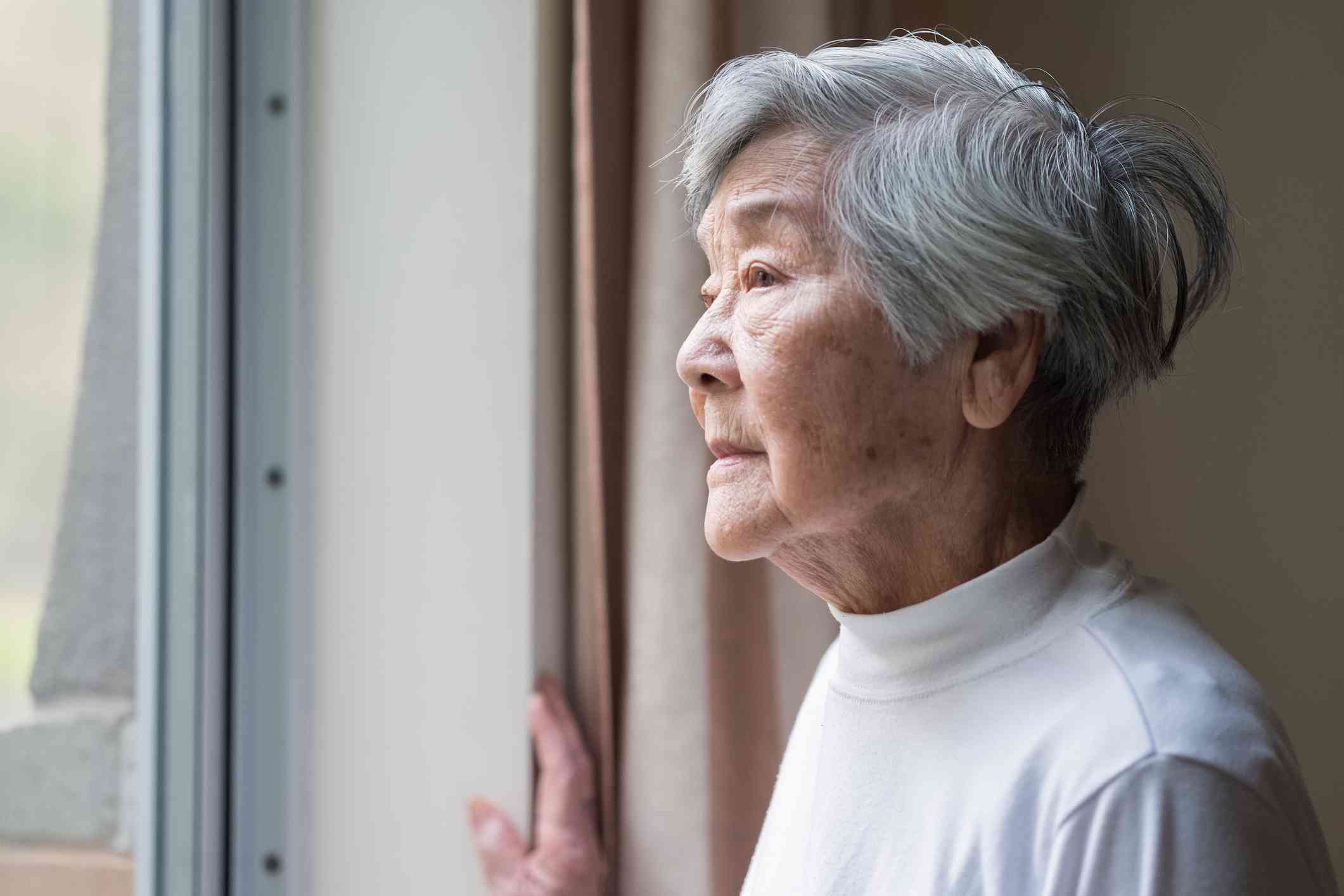8 Healing Grief Quotes To Help You Process Loss
Grief and processing the death of a loved one can be difficult to experience. However, you are not alone, and many individuals have experienced loss. Hearing healing grief quotes from well-known figures and learning more about the individuals who wrote them may be helpful in coping with grief and processing loss.
Quotes about grief and loss
According to the American Psychological Association (APA), grief is defined as the “anguish experienced after significant loss, usually the death of a beloved person.” Grief can be a common experience, as people often lose individuals in their lives as they grow and age, even if individuals vary in exactly the degree of severity of grief they experience in their healing process. The following grief quotes may be helpful when looking for proof that you’re not alone in your feelings and experiences.
Washington Irving
Washington Irving (1783-1859) was an American writer and diplomat known for the works Rip Van Winkle and The Legend of Sleepy Hollow. Irving experienced significant grief during his life, including the death of his partner, Matilda Hoffman, in 1809. Still, Irving may have worked through his deep grief, eventually publishing some of his most notable works after her passing. However, while the quote above is often attributed to Washington Irving, it may be difficult to find precisely if and where he wrote it.
CS Lewis
“No one ever told me that grief felt so like fear.” - CS Lewis
CS Lewis (1898-1963) was an Irish writer who may be best known for his Chronicles of Narnia series. The above quote comes from his book A Grief Observed, which was written following the passing of his wife, Joy Davidman, of cancer in 1960.
Helen Keller
“We bereaved are not alone. We belong to the largest company in all the world—the company of those who have known suffering.” - Helen Keller
Helen Keller (1880-1968) was an educator, writer, and humanitarian who lived with deafness and blindness due to a serious illness after her second birthday. Keller received assistance from experts, including the inventor Alexander Graham Bell and Anne Sullivan. Sullivan worked with Keller, teaching her how to read braille and write. The above quote may be found in Keller’s book We Bereaved.
Anne Lamott
“You will lose someone you can’t live without, and your heart will be badly broken, and the bad news is that you never completely get over the loss of your beloved. But this is also the good news. They live forever in your broken heart that doesn’t seal back up. And you come through. It’s like having a broken leg that never heals perfectly—that still hurts when the weather gets cold, but you learn to dance with the limp.” - Anne Lamott
Anne Lamott (born 1954) is an American author who has written several best-selling novels. Her first novel was written shortly after her father was diagnosed with brain cancer. This quote may come from a series Lamott wrote about truths she had found in life, with this particular piece taken from a passage concerning death.

Viktor E Frankl
“But there was no need to be ashamed of tears, for tears bore witness that a man had the greatest of courage, the courage to suffer.” - Viktor E. Frankl
Viktor Emil Frankl (1905-1997) was a psychologist, neurologist, and author who survived the Holocaust, during which he was imprisoned in Auschwitz. Upon arrival at Auschwitz, Frankl’s brother and mother were executed in gas chambers. Soon after, he learned of the death of his wife. After the end of World War II and his liberation from Auschwitz, Frankl published the book this quote originates from, Man’s Search for Meaning. In addition, Frankl developed a form of psychotherapy called logotherapy, which focuses on the desire humans may have to determine the meaning of life and free will, even in the face of suffering.
JRR Tolkien
“I will not say: do not weep; for not all tears are an evil.” - J.R.R. Tolkien
J.R.R. Tolkien (1892-1973) was a writer who may be best known for his series The Lord of the Rings. Tolkien served during the First World War, and some speculate that certain parts of the Series were based on his experiences. The above quote was spoken by the character Gandalf in Tolkien’s novel Return of the King.
Alphonse de Lamartine
“Sometimes, only one person is missing, and the whole world seems depopulated.” - Alphonse de Lamartine
Alphonse de Lamartine (1790-1869) was a poet, statesperson, historian, and significant figure in French literature’s Romantic movement. In 1816, he met Julie Charles, whom he may have fallen in love with. After her passing in 1817, Lamartine began to write what may be his best-known poems, Méditations Poétiques. The above quote comes from his poetry book Premières Méditations Poétiques.
John Irving
“When someone you love dies, and you’re not expecting it, you don’t lose her all at once; you lose her in pieces over a long time—the way the mail stops coming, and her scent fades from the pillows and even from the clothes in her closet and drawers. Gradually, you accumulate the parts of her that are gone. Just when the day comes—when there’s a particular missing part that overwhelms you with the feeling that she’s gone, forever—there comes another day, and another specifically missing part.” - John Irving
John Irving (born 1942) is a novelist and short story writer best known for his books, such as The Hotel New Hampshire, A Widow for One Year, and Cider House Rules. The quote above comes from one of Irving’s best-selling novels, A Prayer for Owen Meany, which may have been written to examine the consequences and impacts of the Vietnam War.
How is grief treated?
While there is no same person in grief, and each person experiences a unique grieving process, there may be effective ways to acknowledge and accept loss. What type of treatment a person receives or responds to can depend on the severity of their grief and whether they are experiencing a grief-related disorder. According to the Mental Health Technology Transfer Center Network, the following evidence-based treatments for grief may be effective.
Grief-focused cognitive-behavioral therapy (CBT)
Cognitive-behavioral therapy is a psychotherapeutic approach that can help individuals understand the connections between their thoughts, behavior, and emotions. This modality may help individuals discover how certain thought patterns influence emotional and behavioral responses. CBT for grief may use specific methods to help those struggling with loss, such as psychoeducation, exposure therapy, cognitive restructuring, and behavioral activation. These methods could allow a person to accept their loss, modify potentially maladaptive thought and behavior patterns, and reduce avoidance behaviors.
Complicated grief therapy (CGT)
Complicated grief therapy is designed to assist those who are experiencing prolonged grief disorder, also referred to as complicated grief. This type of therapy typically focuses on two main areas, including improving one’s future outlook, which may restore effective functioning, and offering a safe space to consider one’s loss without being overwhelmed by intense feelings. CGT can also address other components of grief, including the management of painful emotions, understanding ways to cope with reminders, strengthening interpersonal relationships, and remembering one’s lost loved one positively.
Meaning in loss (MIL) therapy
Meaning in loss therapy uses narrative therapy principles to encourage individuals to adapt and integrate their grief. Sessions can guide someone with grief to process the narrative of their loss and how it will impact their life. MIL therapy can also help someone understand the story behind their relationship with their lost loved one and weave it into the narrative of their grief. This process may help a person with grief assign meaning to their experience, which may benefit their mental health.
The Family Bereavement Program (FBP)
The Family Bereavement Program is typically utilized to help children, often through group sessions. These group sessions can increase communication skills and strengthen relationships with parents and caregivers. FBP can also show participants active coping strategies, ways to improve self-esteem, reduce potentially harmful thought patterns, clarify what is outside their control, and teach them how to express their emotions. Groups for parents also often run in tandem, showing caregivers positive parenting techniques that allow them to show warmth and affection, effective and compassionate discipline, and ways to reduce their child’s exposure to stress.

Support options
While therapy may benefit individuals experiencing grief, in-person therapy may not be available in all regions. For example, some individuals live in a healthcare professional shortage area (HSPA). In these areas, there may not be sufficient providers to serve the population, which could lead to difficulty finding mental health assistance or significant delays.
In-person therapy can also be inconvenient for some, particularly those who want to attend therapy from their own home or use other communication formats. In these situations, people may benefit from trying online therapy through a platform like BetterHelp. With an online platform, they can choose between phone, video, or live chat sessions and get access to a database of over 30,000 therapists. Research indicates that online therapy can be as effective as in-person therapy, leading to similar levels of symptom reduction, function, client satisfaction, and overall improvement.
Takeaway
- Previous Article
- Next Article